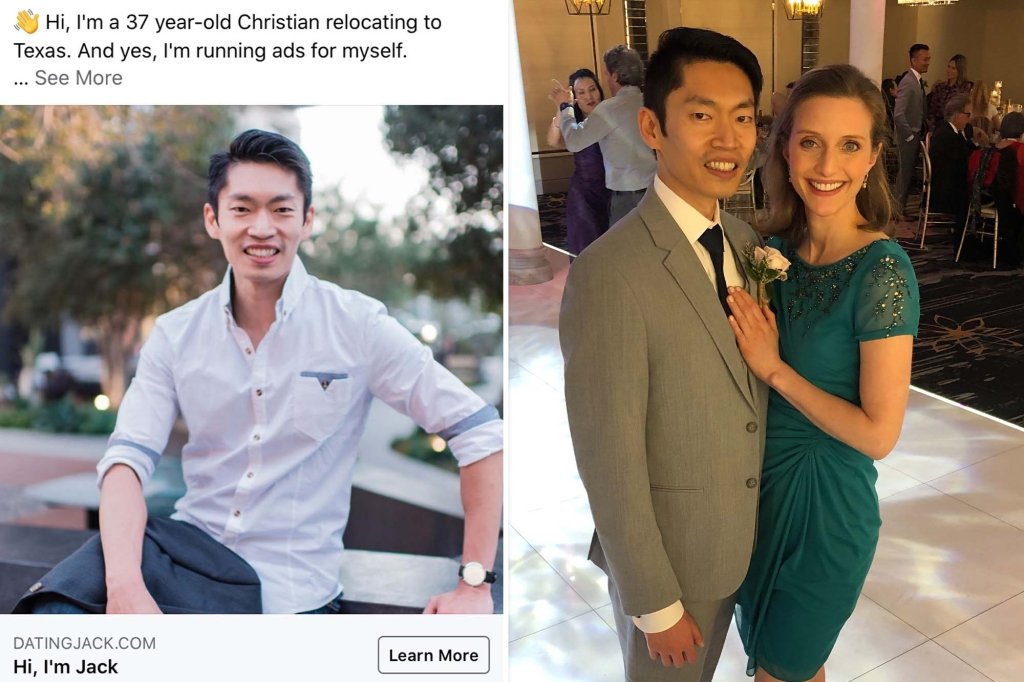Relationships all have their ups and downs, and despite our good intentions, we don’t always show up as our best selves. Some behaviors can be chalked up to having a bad day, while others might be signs of a toxic relationship. But sometimes it’s hard to tell which is which — and when those sporadic negative interactions cross the line into toxicity. So how do you decipher toxic behavior in a relationship?
According to Lauren Consul, LMFT, a toxic relationship “consistently negatively impacts the mental, physical, emotional health, and general well-being of one or both partners. While everyone can occasionally behave poorly and later regret their actions, this alone does not create a toxic relationship. Toxicity arises from consistent patterns of harmful behaviors or dynamics that one or both partners fail to acknowledge, take responsibility for, and genuinely address.”
Toxic traits in a relationship can ultimately undermine your sense of trust, well-being, and safety, both emotionally and sometimes physically. And another scary part? Sometimes you too might be the one displaying toxic behavior in the relationship. If you’re struggling to discern whether you or your partner are exhibiting toxicity, read on to learn more about the signs of a toxic relationship from our panel of experts and what to do if you’re experiencing these red flags.
1. Blaming everything (and everyone) else
One sign of a toxic relationship, says Consul, is when one or both partners consistently point the finger of responsibility at someone or something other than themselves. “They are unable to take accountability for their actions or the impact they have on their partner, instead offering reasons or excuses that deflect blame or place it on their partner,” she explains. This inability to take responsibility creates an unsafe environment for open sharing “and keeps the relationship stuck in surface-level conflicts, preventing the resolution of deeper issues.”
2. Communicating disrespectfully
Dr. Cortney S. Warren, PhD, a board clinical Psychologist and author of the book Letting Go of Your Ex, says people in toxic relationships often talk to and communicate non-verbally in ways that are demeaning, disrespectful, and damaging in a number of ways.
One form of this is the “direct put-down,” Warren says. “Intentionally trying to make someone feel bad about who they are as a person. This is often reflected through using labels that cut someone down, like calling them ‘stupid’ or a ‘loser.’” Another method someone might use is capitalizing on a partner’s insecurities and vulnerabilities by throwing them in their face in a mean-spirited way. “For example, during a heated argument, someone might say, ‘You’re still just as insecure and jealous as you’ve always been — your ex was right about you,’” Warren says.
Intentionally lying is another example. “Being dishonest with a mate erodes trust. The biggest risk here is that when a lie is discovered, it’s hard to trust moving forward. Even ‘little white lies’ undermine honesty.”
Passive-aggressive messages are another form of toxic communication, says Warren. For example, when asked how a person is feeling, they may respond by saying, “I’m fine. Everything is good,” even though it’s clear that they’re angry, sad, or generally upset.
3. Refusing to compromise
Another sign of a toxic relationship is when one partner constantly shuts down the other’s thoughts and ideas, refusing to allow them to influence relationship decisions. “In a partnership, you can maintain your individuality while acknowledging that your decisions impact your partner and the relationship; that’s differentiation,” Consul says. “Being open to being influenced by your partner is a sign of a healthy relationship because it means you respect and value your partner’s opinion and perspective. Being open to influence is different from being manipulated.”
Having more of a rigid, non-flexible way of being in a relationship makes one person have all of the power, says Warren, which is not healthy in shared relationships. On top of that, “it can come across as threatening,” she adds. “For example, saying things like, ‘I am who I am so accept it or leave.’ Or, ‘If you don’t value me for me then we shouldn’t be together.’”
4. Constant undermining
If one partner is regularly belittling the other’s opinions, achievements or feelings, this can indicate a toxic relationship, says sex therapist Dr. Melissa Cook at Sofia Gray. “Behavior like this can very quickly erode someone’s self-worth and confidence, which can have a direct impact on their mental and physical health,” she explains. “Constant undermining is often caused by a deep-seated insecurity with one person feeling the need to be in control.”
5. Codependency within the relationship
Interdependence in a relationship is great; codependency is not. This is an important distinction that often gets conflated, says Consul. “Interdependence involves mutual support and reliance, where both partners maintain their individuality while fostering each other’s growth and emotional well-being,” she explains. For example, partners can rely on and trust each other for support and care, while also using self-soothing skills when needed. Codependency, on the other hand, involves excessive emotional or mental reliance on the other partner, leading to a loss of individuality and autonomy.
“Dependency in a relationship is a good thing—you want to be able to depend on your partner. The issue arises when there is a loss of self to the point where you rely almost exclusively on your partner for your sense of identity,” Consul says.
6. Extreme jealousy.
Envy and jealousy are two completely normal emotions in any relationship, but excessive jealousy can be a red flag. “If it manifests into monitoring of activities, constant questions and accusations without evidence, this can lead to a toxic relationship,” Cook says. Jealousy at this level, she explains, “often stems from a lack of trust and can soon lead to controlling thought patterns and behaviors which limit the freedom and happiness of both partners.”
7. Deliberate punishment
A red flag for a toxic relationship is when you consistently use actions to communicate with your partner rather than addressing issues directly. “Punishing your partner or using manipulative actions to ‘teach a lesson’ creates a hostile environment and fails to address underlying issues, causing them to grow over time,” Consul says.
Adds Warren: “Anytime someone deliberately tries to put down, punish, scold, or emotionally harm their partner it’s going to be harmful to the relationship. For example, calling them names, withholding love, or stonewalling is likely to cause more discord.”
8. Isolation from loved ones
A toxic partner may try to limit how much support the other partner receives from friends and family. According to Cook, this can be done by forbidding you from seeing certain people or through a more subtle approach of guilt-tripping you into not doing something or seeing someone. “This is a toxic tactic that means the other person will become more dependent on the toxic partner,” she says. “It also makes it harder for them to reach out or even recognize potentially harmful behaviors.”
How to address a toxic relationship
If any of these red flags sound familiar, the first step, says Cook, is to acknowledge there could be a problem — and, if you’re the victim, know that it’s not your fault. “Identifying a toxic relationship can be difficult but it’s important for your own mental and physical health,” she says. “Speaking to a trained counselor or therapist can give you the support and knowledge you need to be able to effectively address the issue.” That could mean figuring out how to fix the toxic relationship or how to safely leave it.
If you do feel confident addressing the issues yourself, then she recommends communicating to your partner how you are feeling. To start, “explain your concerns as well as behaviors you have noticed that you won’t tolerate,” Cook says. “Set clear boundaries and explain that if these are not met or the toxic relationship traits continue you may have to consider ending the relationship. It’s essential to prioritize yourself and your mental/emotional health and remember there are plenty of resources online and in person to help you every step of the way.”
If you have experienced sexual abuse or assault, call the free, confidential National Sexual Assault hotline at 1-800-656-HOPE (4673), or access the 24-7 help online by visiting online.rainn.org.
If you are feel unsafe, threatened or believe you are the victim of abuse, contact the National Domestic Violence Hotline at 1-800-799-SAFE, or access the 24-7 help online by visiting online.rainn.org.
A version of this story was published September 2019.
Check out these affordable and helpful mental health apps:



 Anal Beads
Anal Beads Anal Vibrators
Anal Vibrators Butt Plugs
Butt Plugs Prostate Massagers
Prostate Massagers
 Alien Dildos
Alien Dildos Realistic Dildos
Realistic Dildos
 Kegel Exercisers & Balls
Kegel Exercisers & Balls Classic Vibrating Eggs
Classic Vibrating Eggs Remote Vibrating Eggs
Remote Vibrating Eggs Vibrating Bullets
Vibrating Bullets
 Bullet Vibrators
Bullet Vibrators Classic Vibrators
Classic Vibrators Clitoral Vibrators
Clitoral Vibrators G-Spot Vibrators
G-Spot Vibrators Massage Wand Vibrators
Massage Wand Vibrators Rabbit Vibrators
Rabbit Vibrators Remote Vibrators
Remote Vibrators
 Pocket Stroker & Pussy Masturbators
Pocket Stroker & Pussy Masturbators Vibrating Masturbators
Vibrating Masturbators
 Cock Rings
Cock Rings Penis Pumps
Penis Pumps
 Wearable Vibrators
Wearable Vibrators Blindfolds, Masks & Gags
Blindfolds, Masks & Gags Bondage Kits
Bondage Kits Bondage Wear & Fetish Clothing
Bondage Wear & Fetish Clothing Restraints & Handcuffs
Restraints & Handcuffs Sex Swings
Sex Swings Ticklers, Paddles & Whips
Ticklers, Paddles & Whips




















